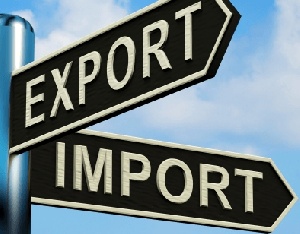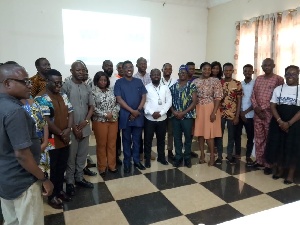Business News of Tuesday, 15 April 2025
Source: www.ghanawebbers.com
Ghana must have strategic response to US tariffs - Ghana Business News
The U.S. government has imposed a 10% tariff on select imports. This includes goods from Ghana, impacting the country's export-oriented industries. Tourism Consultant Dr. Nana Baa Wiredu believes this challenge can be turned into an opportunity.
Dr. Wiredu stated that U.S. tariffs threaten Ghana's export sectors. Products like cocoa, aluminum, and agricultural commodities are particularly affected. He emphasized the need to confront these challenges head-on.
He suggested that the government strengthen trade diplomacy efforts regionally and globally. This will help preserve Ghana's preferential access to key markets. "We must engage with partners in the U.S. and beyond," he said.
Dr. Wiredu also highlighted the importance of market diversification through the African Continental Free Trade Area (AfCFTA). Launched in 2019, AfCFTA allows Ghana to expand trade within Africa. It can help offset losses from U.S. tariffs.
"The AfCFTA is a game-changer for us," Dr. Wiredu noted. It provides access to over 1.3 billion people and fosters regional partnerships.
To enhance competitiveness, Dr. Wiredu called for initiatives supporting local enterprises. These should focus on improving productivity, product quality, and value addition capabilities.
He proposed targeted incentives like tax breaks and low-interest loans for businesses to modernize operations. The goal is for Ghanaian exports to compete on price, quality, and uniqueness.
Dr. Wiredu stressed empowering local producers to diversify their offerings as well. This would position Ghana as a reliable supplier of various goods.
In addition, he urged the government to intensify investment promotion strategies for foreign direct investment (FDI). This should target industries less affected by U.S tariffs.
Ghana's strategic location and favorable business environment can attract multinational companies seeking opportunities in Africa, he explained.
Dr. Wiredu pointed out that political stability and skilled workforce are key assets for job creation and economic diversification.
"By diversifying our economy, we can reduce reliance on vulnerable sectors," he added.
He also emphasized strengthening Ghana's tourism sector for foreign exchange generation and job creation.
"Ghana’s rich cultural heritage and natural landscapes offer unique tourism potential," Dr. Wiredu noted.
He reiterated calls for a comprehensive national tourism strategy to attract more visitors to Ghana.
"Developing high-quality infrastructure will help diversify our economy," he explained further.
As Ghana faces challenges from U.S tariffs, Dr. Wiredu expressed confidence in the government's strategic approach focused on trade diplomacy and tourism development.
"We did not choose this challenge but we will choose our response," he concluded confidently.











